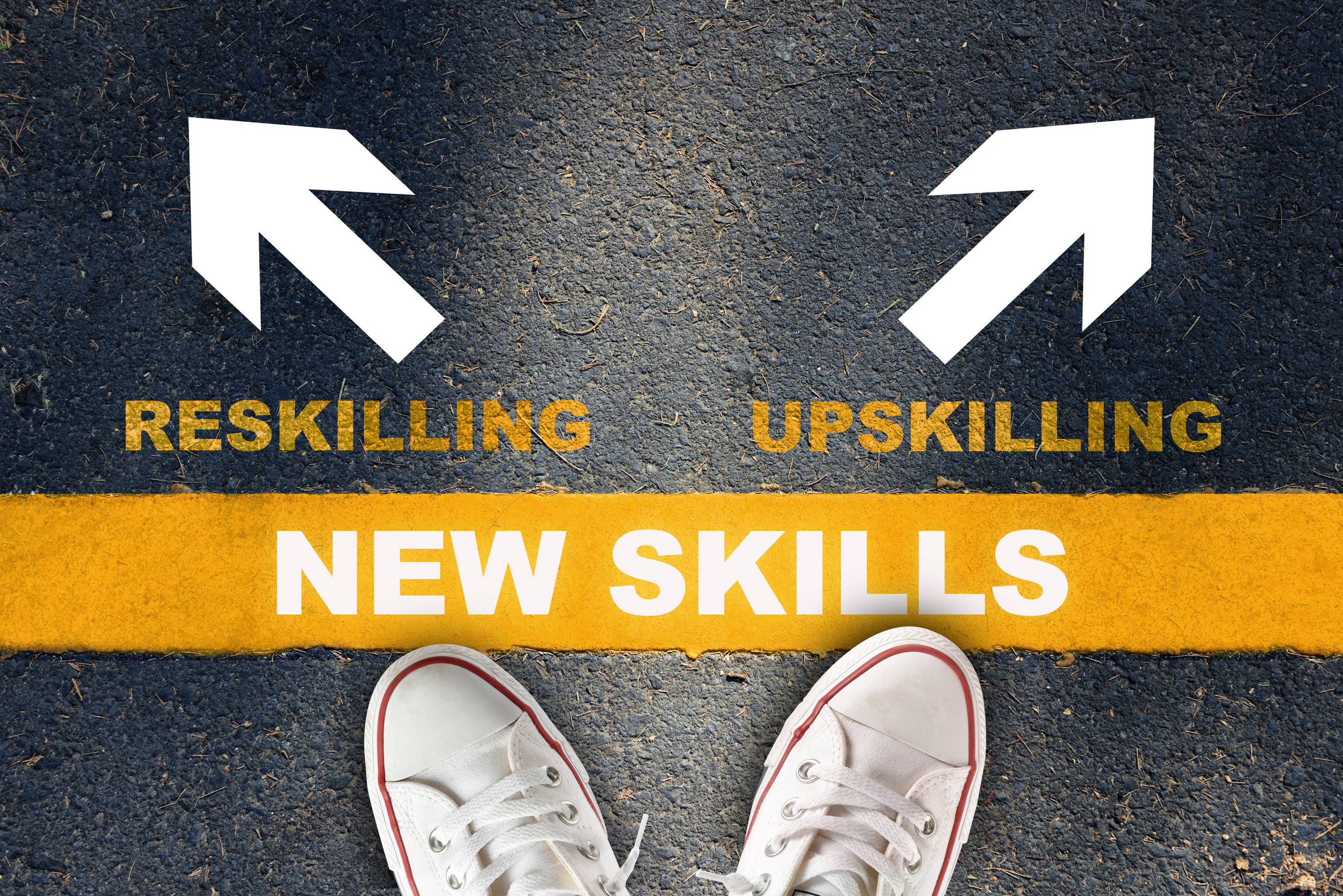The modern office has been evolving rapidly these years, with Artificial Intelligence (AI) at the forefront of this transformation. AI is revolutionising working mode, from streamlining workflows to enhancing communication, making offices more productive and efficient.
In this blog, we'll explore the impact of AI in office environments, its benefits and challenges, and the steps businesses can take to prepare their workforce for an AI-driven future.
1) The Use of AI in Office Environments
AI is no longer confined to tech-savvy industries; it has become a critical tool in everyday office work. A 2023 survey revealed that over 80% of global companies are adopting AI to improve business operations. Furthermore, 75% of knowledge workers report using generative AI to enhance their productivity. For instance:
-
Automation: AI tools automate data entry, payroll processing and document sorting, freeing employees for strategic work.
-
Decision-Making: AI-driven analytics tools, such as Microsoft Excel's AI features, provide insights that support better and faster decision-making.
-
Office Communication: Tools like AI-powered chatbots, email assistants and transcription services are enhancing communication workflows.
The integration of AI into office operations is paving the way for smarter and more efficient workplaces.
2) AI in the Office: Benefits and Challenges
AI offers numerous benefits that are evolving office environments. One significant advantage is increased efficiency. AI tools handle routine tasks with remarkable speed and precision, saving employees considerable time on manual processes. For example, platforms like ChatGPT can summarise lengthy reports, draft emails, or assist with brainstorming ideas almost instantly.
Another significant benefit is cost reduction. By automating labour-intensive tasks, particularly in administrative areas, AI allows organisations to cut costs while maintaining high-quality output. Additionally, AI-powered analytics tools enhance decision-making by processing vast amounts of data to identify trends, insights and predictions, giving leaders the information they need to make well-informed choices. AI also improves communication within the office. Chatbots and AI-driven email assistants streamline interactions by ensuring clarity, responsiveness and efficiency in both internal and external communication.
However, the adoption of AI is not without challenges. A key concern is job displacement. As AI automates repetitive roles, it raises fears of workforce instability, emphasising the need for upskilling initiatives to help employees adapt to new roles. Ethical concerns are another pressing issue, with data privacy, algorithmic bias and potential misuse of AI tools requiring careful oversight and regulation.
Striking a balance between these advantages and challenges is critical for organisations aiming to integrate AI effectively. Businesses can ensure a smoother transition to an AI-driven workplace by addressing the disadvantages and leveraging the benefits.
3) Where to Start? Building an AI-Ready Workforce
To nail AI's potential, businesses must ensure their employees are prepared to work alongside these transformative technologies. Building an AI-ready workforce involves a dual focus on upskilling and reskilling.
Upskilling equips employees with the knowledge to effectively use AI tools specific to their roles, such as Zapier for automating workflows or Decktopus for creating polished professional presentations.
Reskilling, on the other hand, focuses on providing workers with new skills that align with AI-driven workflows, enabling them to transition into roles less affected by automation, such as data interpretation or strategic planning.
By investing in comprehensive training programmes, organisations can foster a capable workforce ready to develop an AI-enhanced workplace.
4) Preparing for an AI-Driven Future
The rapid adoption of AI underscores the need for organisations to invest in training programmes and skill development initiatives. Businesses can foster innovation and agility in an AI-driven landscape by equipping employees with the knowledge and tools to collaborate with AI.
Training programmes should emphasise technical skills, creativity, critical thinking, and problem-solving—areas where human ingenuity complements AI capabilities.
Learn More with London Training for Excellence
Want to equip your team with practical AI skills? The brand-new course Office AI: Practical AI for Everyday Office Work by London Training for Excellence offers hands-on training to bridge the gap between AI technology and office professionals.
Gain the knowledge and tools to harness AI's potential while preparing your workforce for a future where technology and human ingenuity work together.
Written by London Training for Excellence Team
About the author:
The author is a passionate advocate for continuous learning and professional development. With a rich background in training and consultancy, the author had the privilege of working with diverse industries across the globe, helping professionals sharpen their skills and excel in their careers.
All Courses
 Business Administration
Business Administration
 Chemical Engineering
Chemical Engineering
 Communications and Public Relations (PR)
Communications and Public Relations (PR)
 Compliance and Legal
Compliance and Legal
 Contract and Project Management
Contract and Project Management
 Customer Experience and Relationship Management
Customer Experience and Relationship Management
 Energy and Sustainability
Energy and Sustainability
 Finance and Accounting
Finance and Accounting
 Health, Safety and Environment
Health, Safety and Environment
 Human Resources and Talent Development
Human Resources and Talent Development
 Industrial Manufacturing and Production
Industrial Manufacturing and Production
 Innovation and Artificial Intelligence (AI)
Innovation and Artificial Intelligence (AI)
 Leadership and Management
Leadership and Management
 Oil and Gas
Oil and Gas
 Procurement & Supply Chain Management
Procurement & Supply Chain Management
 Quality and Productivity
Quality and Productivity
 Retail and E- Commerce
Retail and E- Commerce
 Sales and Marketing
Sales and Marketing
 Sports Event Management and Operations
Sports Event Management and Operations
 Strategy and Business Planning
Strategy and Business Planning
 Sustainability and CSR
Sustainability and CSR
Learning Solutions
iLearn Blog
About Us
 Directory Calendar
Directory Calendar
 Contact Us
Contact Us
All Courses
 Business Administration
Business Administration
 Chemical Engineering
Chemical Engineering
 Communications and Public Relations (PR)
Communications and Public Relations (PR)
 Compliance and Legal
Compliance and Legal
 Contract and Project Management
Contract and Project Management
 Customer Experience and Relationship Management
Customer Experience and Relationship Management
 Energy and Sustainability
Energy and Sustainability
 Finance and Accounting
Finance and Accounting
 Health, Safety and Environment
Health, Safety and Environment
 Human Resources and Talent Development
Human Resources and Talent Development
 Industrial Manufacturing and Production
Industrial Manufacturing and Production
 Innovation and Artificial Intelligence (AI)
Innovation and Artificial Intelligence (AI)
 Leadership and Management
Leadership and Management
 Oil and Gas
Oil and Gas
 Procurement & Supply Chain Management
Procurement & Supply Chain Management
 Quality and Productivity
Quality and Productivity
 Retail and E- Commerce
Retail and E- Commerce
 Sales and Marketing
Sales and Marketing
 Sports Event Management and Operations
Sports Event Management and Operations
 Strategy and Business Planning
Strategy and Business Planning
 Sustainability and CSR
Sustainability and CSR
Learning Solutions
iLearn Blog
About Us
 Directory Calendar
Directory Calendar
Contact Us














































 Course Venue
Course Venue